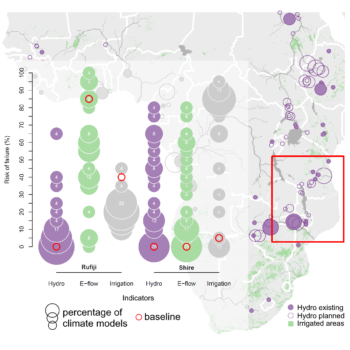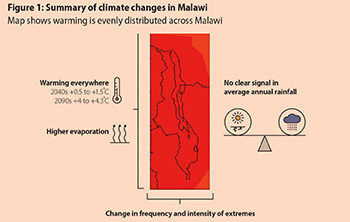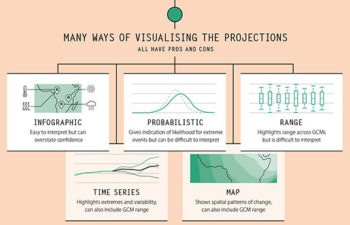Joanna Pardoe

Joanna was a postdoctoral researcher on the Future Climate For Africa UMFULA project. She joined the GRI in January 2016 after completing her PhD at the United Nations University in Bonn. Joanna’s research interests are centred on the socio-economic aspects of climate driven hazards, with a particular emphasis on novel qualitative research approaches. Her doctoral thesis examined vulnerability and adaptation to multiple hazards in West Africa and her work on UMFULA will build on this with a focus on decision making under uncertainty in Central and Southern Africa.
Background
Prior to her PhD, Joanna obtained a Masters degree specialising in water science, policy and management at the University of Oxford and subsequently spent three years as a Researcher at Middlesex University’s Flood Hazard Research Centre.
Research
Research - 2021
The authors of this paper examined past and future climate variability with the aim of understanding the main source of climate risk to development plans across the water, energy, and food sectors in southern East Africa, a relatively neglected region in terms of climate science and targeted for extensive infrastructure development. Read more

Research - 2020
The authors of this paper discuss how the choice and application of four existing social science methods (interview-informed role play workshop, open-ended interviews, prioritised surveys and enhanced surveys) arose out of, and was in turn embedded within, a different epistemological approach characteristic of co-production to identify decision-relevant climate metrics for the water and agriculture sectors in Malawi and Tanzania. Read more

In this paper, we use an inductive approach and longitudinal analysis to explore political influences on the emergence and evolution... Read more

Making climate-resilient planning and adaptation decisions is, in part, contingent on the use of climate information. Growing attention has been... Read more

Research - 2018
The El Niño event in 2015/2016 was one of the strongest since at least 1950. Through surveys and interviews with... Read more

Government ministries are increasingly mainstreaming climate change adaptation within policies and plans. However, government staff in key implementing ministries need... Read more

There are currently challenges to generating climate services relating both to the supply of climate science and its application. This paper from the UMFULA project reviews the current availability of climate information in Southern Africa and assesses the requirements of a variety of end users in the region, highlighting the importance of creating user-tailored climate services. Read more

Using the cases of Malawi, Tanzania and Zambia, this paper investigates the extent of coherence in national policies across the water and agriculture sectors and to climate change adaptation goals outlined in national development plans. Read more

The 2015/2016 El Niño was one of the three most severe on record. El Niño is commonly linked to droughts... Read more

Research - 2017
Using document analysis and key informant interviews, this article examines how climate change is addressed in policy, how it is being mainstreamed into water, energy and agriculture sector policies and the extent to which cross-sectoral linkages enable coordinated action. These questions are addressed through a case study of Tanzania, highlighting broader lessons for other developing countries, particularly those in SSA facing similar challenges. Read more

Policy
Policy - 2018
Coherent, cross-sectoral approaches to policy development are essential to meeting the Paris Agreement on climate change and the Sustainable Development Goals. Drawing on research from southern Africa, this brief makes recommendations for improving coherence, which is currently partial to weak across the region. Read more

Policy - 2017
This brief provides an overview of future climate change in Tanzania, using results from the latest available climate model simulations. The UMFULA research team of the Future Climate for Africa (FCFA) programme has analysed 34 Global Climate Models (GCMs) that provide projections for Tanzania to try to distil robust messages and some key trends that may help planning and decision-making. Read more

This brief provides an overview of future climate change in Malawi, using results from the latest available climate model simulations.... Read more

Global climate models (GCMs) are the most widely used method to understand future climate change. A new guide from the... Read more

Events
Events - 2018
News
News - 2016
A new Grantham Research Institute project is exploring the impact of El Niño and La Niña events on small-and medium-sized enterprises in Africa. Read more


